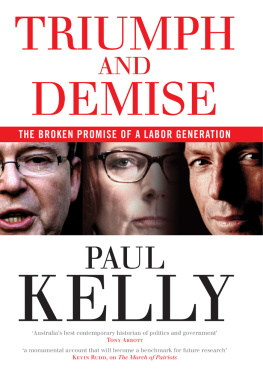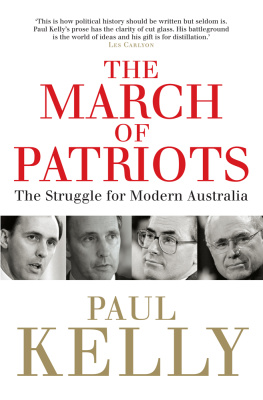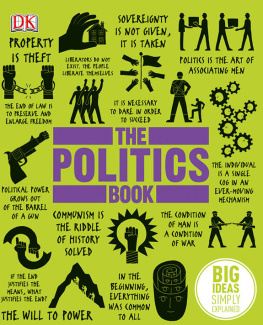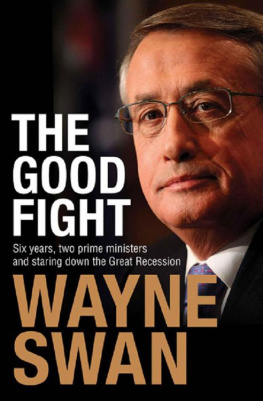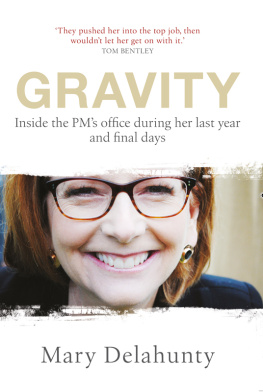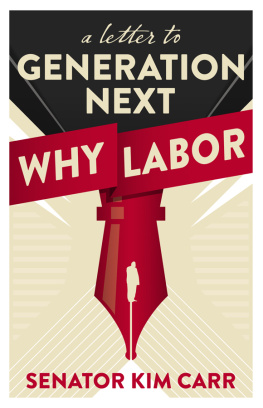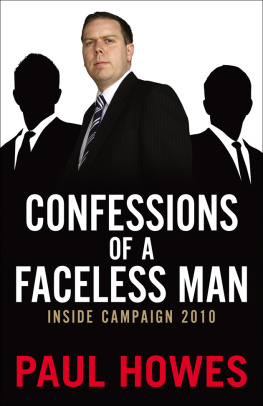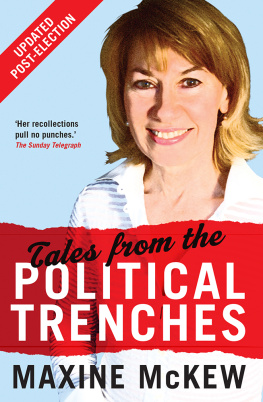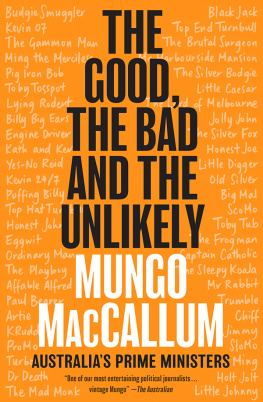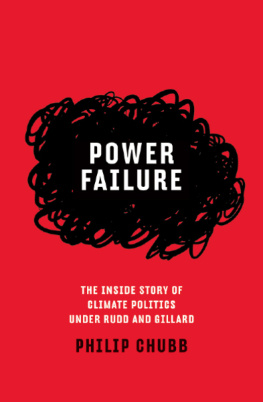TRIUMPH
AND
DEMISE
TRIUMPH
AND
DEMISE
THE BROKEN PROMISE OF A LABOR GENERATION
PAUL KELLY
For my sons,
Daniel and JosephMELBOURNE UNIVERSITY PRESS
An imprint of Melbourne University Publishing Limited
1115 Argyle Place South, Carlton, Victoria 3053, Australia
www.mup.com.au
First published 2014
Text Paul Kelly, 2014
Design and typography Melbourne University Publishing Limited, 2014
This book is copyright. Apart from any use permitted under the Copyright Act 1968 and subsequent amendments, no part may be reproduced, stored in a retrieval system or transmitted by any means or process whatsoever without the prior written permission of the publishers.
Every attempt has been made to locate the copyright holders for material quoted in this book. Any person or organisation that may have been overlooked or misattributed may contact the publisher.
Edited by Sally Moss, Context Editorial
Cover design by Philip Campbell Design
Typeset by Megan Ellis
Printed in Australia by McPhersons Printing Group
National Library of Australia Cataloguing-in-Publication entry
Kelly, Paul, 1947 author.
Triumph and demise : the broken promise of a Labor generation/Paul Kelly.
9780522862102 (hardback)
9780522866810 (ebook)
Includes bibliographical references.
Australian Labor Party.
Political leadershipAustralia.
Political entrepreneurshipAustralia.
Political planningAustralia.
AustraliaPolitics and government2001
324.29407
CONTENTS
I
TURNING POINTS
II
THE LABOR MALAISE
III
THE CRISIS OF THE SYSTEM
IV
THE RUDD TRIUMPH
V
THE RUDD PROJECT
VI
THE CONSERVATIVE CRISIS
VII
THE DEMISE OF RUDD
VIII
GILLARD IN OFFICE: ALIVE BUT DOOMED
IX
THE DEMISE OF LABOR
PREFACE
Triumph and Demise is the story of the six-year Labor Government of Kevin Rudd and Julia Gillard from 2007 to 2013. After eleven long years in opposition the return of Labor was invested with high hopes for policy and political successes. Yet the triumph of 2007 surrendered to the demise of 2013, with many of these hopes dashed or compromised.
This book argues three central propositions: that the destruction of the RuddGillard partnership was the fatal event; that Labor in office was burdened by an institutional malaise that went to identity, policy and strategy; and that the deeper lesson from the RuddGillard years is that Australias political system is in a crisis that threatens the delivery of national interest outcomes and, without correction, will damage our society and living standards.
The book draws upon my coverage of the RuddGillard years but relies primarily upon more than sixty interviews with the main participants, in particular Kevin Rudd, Julia Gillard, Tony Abbott, Wayne Swan and Malcolm Turnbull. I interviewed more than twenty former Labor cabinet ministers, a number of senior Coalition politicians, other ALP political figures, some ministerial staff, policy experts, corporate leaders and public servants, both retired and current. I made an effort to persuade people to speak on-the-record and I believe this is a valuable feature of the book.
I want to thank those who co-operated, often giving me many hours of their time. I apologise to others to whom I should have spoken. An unfortunate reality of combining journalism with contemporary history writing is the ruthless limit imposed by time and logistics.
This book began as a different project: it was to be the second half of the Howard era from 2001 to 2007 as I explained in my earlier book, The March of Patriots. Indeed, I had completed a large amount of research and writing to this objective. In the end, however, I felt the Labor period was so compelling that it had to become the heart of this project.
I owe a special thanks to the Editor-in-Chief of The Australian, Chris Mitchell, whose support for this book has been critical and who tolerated my extended absence to complete it. At Melbourne University Publishing I thank Louise Adler for her belief in the book and enduring support. Cathryn Smith has been a dedicated manager of the project. I thank her and the entire team at MUP.
My son Joe, a journalist who covered some of these events, came up with the title. I liked it from the start. He provided vital help in reading and editing the manuscript and offering advice that led to important changes. There are many other people I should thank for their contributions at various stages: Dennis Shanahan, who covered the Labor Government and whose help and insights were highly valuable, Chris Richardson and Stephen Anthony for helping me to understand better the budgets of the period, Elena Douglas for assistance on editing, Mary Corkhill for interview transcriptions and many colleagues and friends on The Australian for their help over the years.
I assume responsibility for the book in its strengths and defects. This was a difficult period to write about because, more than any other era I have covered in book form, it is plagued by contested views over facts, events, conversations and policy assessment. I remain open to further refinements for subsequent editions.
Sydney 2014
CHAPTER 1
THE DESTRUCTION OF A GOVERNMENT
J ulia Gillards request was lethalthat Kevin Rudd surrender as prime minister, in her favour. I have been talking to my colleagues, she told him. Gillard now knew Rudd had lost the confidence of the Australian Labor Party. She wanted Rudd to resign but if he refused she would seek a leadership ballot. Gillard delivered the final blow only after being assured she had the numbers. Labor was ready to execute Kevin Rudd, hero of its 2007 election victory.
This was the final stage of the RuddGillard meeting on the evening of 23 June 2010 in the prime ministers office. In her view, Rudd later said, I could not win the election. He was angry and shocked. Resentment against Rudd had a long fuse but the detonation came with a brutality and speed unmatched in Labor history. The RuddGillard partnership died that evening.
Gillard, in effect, had signed the death warrant of the Labor Government. It is a contested judgement but the evidence is persuasive. The destruction of Rudd triggered a series of falling political dominoes that would reduce Labor to a minority government within months and would see its convincing defeat three years later. By her action Gillard assumed political responsibility for the consequences.
This became the pivotal moment in the six-year RuddGillardRudd Government. Labor would never recover; the destructive forces unleashed assumed a life of their own. There were many dismal consequences: the destruction of Rudd as prime minister; the crippling of Gillard as the new prime minister; the conversion of Rudd into a compulsive insurgent; and a bitter RuddGillard rivalry that would endure unabated until they both left politics. Despite Labors achievements in office, the publics perpetual image became that of a government consumed by the RuddGillard war.
Gillards tragedy is that Rudds flaws provoked her strike. She had an excuse and a rationale. Her justification lay in party sentiment. Gillard acted as agent of a Labor Party that was weak, panicked and faithless. It wanted an end to Rudd. Labor, as a political party, had failed at the task of governing and had misunderstood its responsibility to the nation.

